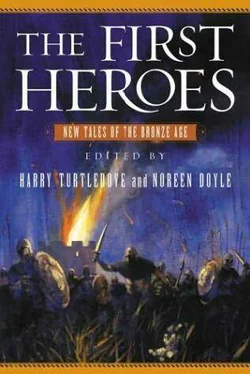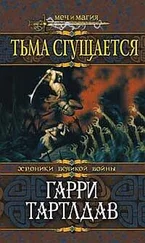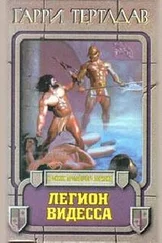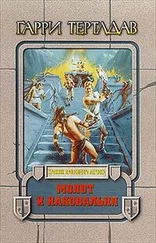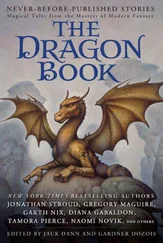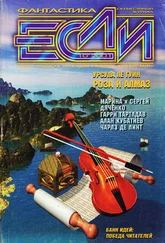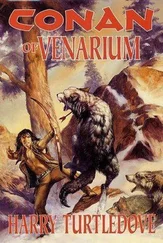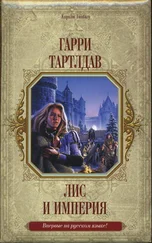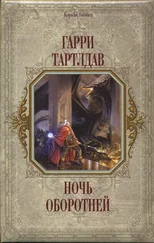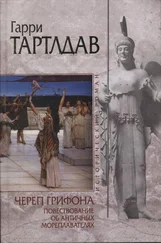Гарри Тертлдав - The First Heroes
Здесь есть возможность читать онлайн «Гарри Тертлдав - The First Heroes» весь текст электронной книги совершенно бесплатно (целиком полную версию без сокращений). В некоторых случаях можно слушать аудио, скачать через торрент в формате fb2 и присутствует краткое содержание. Жанр: Фантастика и фэнтези, на английском языке. Описание произведения, (предисловие) а так же отзывы посетителей доступны на портале библиотеки ЛибКат.
- Название:The First Heroes
- Автор:
- Жанр:
- Год:неизвестен
- ISBN:нет данных
- Рейтинг книги:3 / 5. Голосов: 1
-
Избранное:Добавить в избранное
- Отзывы:
-
Ваша оценка:
- 60
- 1
- 2
- 3
- 4
- 5
The First Heroes: краткое содержание, описание и аннотация
Предлагаем к чтению аннотацию, описание, краткое содержание или предисловие (зависит от того, что написал сам автор книги «The First Heroes»). Если вы не нашли необходимую информацию о книге — напишите в комментариях, мы постараемся отыскать её.
The First Heroes — читать онлайн бесплатно полную книгу (весь текст) целиком
Ниже представлен текст книги, разбитый по страницам. Система сохранения места последней прочитанной страницы, позволяет с удобством читать онлайн бесплатно книгу «The First Heroes», без необходимости каждый раз заново искать на чём Вы остановились. Поставьте закладку, и сможете в любой момент перейти на страницу, на которой закончили чтение.
Интервал:
Закладка:
"For one thing, we would fight you, and many of your hes would die," I said. "I do not deny you would win in the end, but it would cost you dear. And if you rob us and kill us, no more of our folk will come to this shore. You will have one triumph, not steady trade. Which do you want more?"
The man thought it over. By his expression, he had never before had to weigh such considerations. I wondered whether one orgy of slaughter would count for more with him than years of steady dealing. Some folk care nothing for the future. It might as well not be real to them. Were Geraint and his kind of that sort? If so, all we could do was sell ourselves as dear as possible.
In due course, he decided. "You have given me a thought of weight, Cheiron," he said. He pronounced my name oddly. No doubt his in my mouth was not fully to his liking, either. Our languages were close cousins, but not quite brothers. He went on, "Trade is better. Robbery is easier and more fun, but trade is better. Our grandsons and their grandsons can go on trading if we do well here."
"Just so," I said, pleased he could look past himself. Maybe all his talk of rules, rules even in the heavens, had something to do with it. "Aye, just so. Come back to the ship, then, and we shall see what sort of bargains we may shape."
We clasped hands, he and I. Though his body could not match mine for speed, his grip was strong. He and his followers turned and went off toward the rest of the mans, who were waiting for them. Oreus and Hylaeus and I trotted back to our fellow centaurs. "It is agreed," I called. "We will trade. All is well."
A jackdaw flew up from the stone circle. "Chaka-chaka-chak!" it cried. It seemed as if it was laughing at me. What a fool I was, to let a little gray-eyed bird prove wiser than I.
As I have said, we centaurs were quicker than mans. But Geraint's folk showed surprising endurance. We could do more in an hour. Over a day's journey, the difference between us was smaller, for the mans would go on where we had to pause and rest.
We did all we could to take their measure, watching how they hunted, how they used their bows and spears. They, no doubt, were doing the same with us. How folk hunt tells much about how they will behave in a fight. I learned nothing spectacular from the mans, save that they were nimbler than I would have guessed. With our four feet and larger weight, we cannot change directions so readily as they do. Past that, there was little to choose between them and us.
No, I take that back. There was one thing more. I had seen it even before I saw the mans themselves. The other folk of the Tin Isle could not abide their presence. I wondered if Bucca would call on us while we were in Geraint's company. He did not, which left me saddened but unsurprised. And of the other nuggies, or of the spriggans and piskies, we found not a trace.
Hylaeus noted the same thing. "Maybe the man spoke true when he said they died of embarrassment," he said worriedly.
"Will the same begin to happen to us?"
"If it will, it has not yet," I answered, "We are stronger-willed than those other folk; no one would doubt that."
"True."
But Hylaeus did not sound much relieved. "But I cannot help thinking they are all of what we are only in part. Does that not give them more of a certain kind of strength than we have?"
I wished that thought had not also occurred to me. Still, I answered, "What difference does it make? What difference can it make? We will trade with them, we will load the Chalcippus with tin till she wallows like a pregnant sow, and then we will sail home. After that, how can the mans' strength matter?"
Now he did seem happier, saying, "True, Cheiron, and well thought out. The sooner we are away from the Tin Isle, the gladder I shall be."
"And I," I said. "Oh, yes. And I."
Geraint sent some of his mans off to gather the tin: whether to dig it from the ground themselves or to take it from stocks the nuggies had mined before failing, I could not have said. They brought the metal in the usual leather sacks, each man carrying one on his back. They had no shame in using themselves as beasts of burden. And the sacks of tin did not much slow them. They still kept up with us.
As with our home country, no part of the Tin Isle is very far from any other part. We soon returned to the Horse of Bronze. The hes we had left behind to guard the ship were overjoyed to see us and bemused to see the mans. Anyone of any folk seeing mans for the first time is bound to be bemused, I do believe.
The trading went well: better than I had expected, in fact. Geraint was clever, no doubt about that. But he had little practice at dickering. I gather, though I am not certain, that he was much more used to taking than to haggling. To him, the tin he gave us was almost an afterthought, nothing to worry about. He wanted what we had.
When the dealing was done, when we had loaded the sacks of tin aboard the Chalcippus and his mans had carried off the trade goods, he said, "Let us have a feast, to celebrate the hour of our meeting."
"You are kind and generous," I said, meaning it at least in part. The countryside belonged to the mans. If there was to be a feast, the burden of fixing it would fall on them. I did add, "But let it not be long delayed. The season advances. Ocean the Great was harsh enough on the northward voyage. I would not care to sail in a time when storms grow more likely."
"As you say, so shall it be," Geraint replied, and so, indeed, it was. Mans brought cows and sheep and pigs to the seashore for slaughtering as the sun went down. Others had slain deer and ducks and geese. Shes of the man kind—womans, Geraint called them—came to tend to the cooking. Many of them were as pleasing in face and upper body as any of the shes we had left behind so long ago. Below . . . Below is always a mystery. The mystery here was to discover whether one part would fit with another. Some of us, I am told, made the experiment, and found it not altogether unsatisfactory. I doubt we would have, were our own shes close by. But they were not, and so . . .
I do wonder if any issue resulted, and of what sort. But that is something I shall never know.
Along with roasting meat, the womans baked barley cakes and others from different grains they grow in that northern clime. Those were edible, but oats and rye are not foods on which I should care to have to depend. And the womans baked bread from the good wheat flour we had brought from our own home. The soft chewiness and fine flavor of the loaves occasioned much favorable comment from the mans.
In that part of the world, they use less pottery than we. Being rich in forests, they make wooden barrels in place of our amphorae. The mans brought several of them to the feast. I asked Geraint, "What do these hold?"
"Why, cerevisia, of course," he answered in surprise. "We brew it from barley. Do you not know it?"
"No, though we sometimes use barley-water as a medicine," I said.
He laughed. "Even as we do with cerevisia. Drink of it, then, and be . . . cured." He laughed again.
Some of the womans broached a barrel of cerevisia and used a wooden dipper to pour the stuff into mugs, most of them of wood; some of pottery; and a few, for the leaders, of gold. The stuff in the barrel was thin and yellow. It looked, to be honest, more like what we expend after drinking than anything we would have wanted to drink. But the mans showed no hesitation. In fact, they were eager. I also saw that the womans sneaked mugs of cerevisia for themselves when they thought no one was looking.
Geraint, then, had not brought this stuff forth with the intention of poisoning us. He could not possibly have given so many mans an antidote ahead of time, and he could not have known in advance which womans would drink and which would not. He had a mug of cerevisia himself, a golden mug. He lifted it to me in salute. "Your good health!" he said, and drank it down.
Читать дальшеИнтервал:
Закладка:
Похожие книги на «The First Heroes»
Представляем Вашему вниманию похожие книги на «The First Heroes» списком для выбора. Мы отобрали схожую по названию и смыслу литературу в надежде предоставить читателям больше вариантов отыскать новые, интересные, ещё непрочитанные произведения.
Обсуждение, отзывы о книге «The First Heroes» и просто собственные мнения читателей. Оставьте ваши комментарии, напишите, что Вы думаете о произведении, его смысле или главных героях. Укажите что конкретно понравилось, а что нет, и почему Вы так считаете.
